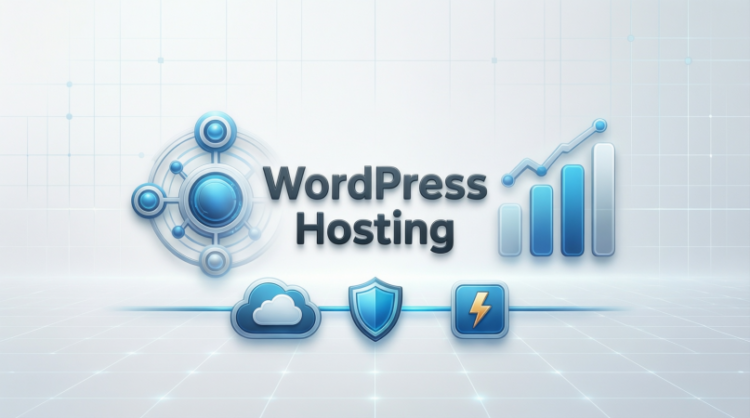
- Introduction: Understanding the Differences
- Advantages of Franchising
- Advantages of Independent Business
- Factors to Consider When Choosing
- Financing Options for Franchising and Independent Business
- Risks and Challenges of Franchising and Independent Business
- Making the Right Decision: Factors to Consider
- Conclusion: Choosing the Best Option for Your Business
- FAQ
Franchise vs Independent Business: Which is Right for You?. Starting a business is a big decision, and one of the most important choices you’ll make is whether to start an independent business or invest in a franchise. While both options have their advantages and disadvantages, it’s essential to determine which option is right for you before making a commitment. In this article, we’ll explore the differences between franchises and independent businesses, the advantages and disadvantages of each, and the factors you should consider when choosing the right option for your business. Whether you’re an aspiring entrepreneur or an experienced business owner, this article will help you make an informed decision about your next venture.
Introduction: Understanding the Differences
If you’re interested in starting your own business, one of the first decisions you’ll need to make is whether to start an independent business or a franchise. Both options have their advantages and disadvantages, so it’s important to carefully weigh your options before making a decision. In this article, we’ll explore the differences between franchising and independent businesses, the pros and cons of each, and what factors you should consider when making your decision.
What is a Franchise?
A franchise is a type of business where an individual (the franchisee) can operate a business that is part of an established company (the franchisor). The franchisee pays an initial fee to the franchisor in exchange for the right to use the company’s name, products, services, and support. In return, the franchisee agrees to operate the business according to the franchisor’s established standards and guidelines.
What is an Independent Business?
An independent business is a business that is owned and operated by an individual or group of individuals. Unlike a franchise, independent business owners have complete control over their business, including the products and services they offer, the branding and marketing strategies they use, and how they operate day-to-day.
Advantages of Franchising
Established Brand
One of the main advantages of franchising is that the franchisee gets to work with an established brand that already has name recognition. This can make it easier to attract customers and build a reputation in the industry.
Proven Business Model
Another advantage of franchising is that the franchisee gets access to a proven business model, complete with training and support from the franchisor. This can make it easier to get started and can help the franchisee avoid some of the common mistakes that new businesses make.
Marketing and Advertising Support
Most franchisors provide marketing and advertising support to their franchisees, including national or regional advertising campaigns, marketing materials, and support for local advertising efforts. This can be a major advantage for franchisees who might not have the resources or expertise to handle these tasks on their own.
Advantages of Independent Business
Flexibility and Control
One of the biggest advantages of independent business ownership is the flexibility to make decisions and run the business according to your own vision and values. Independent business owners have complete control over every aspect of their business, from branding and marketing to operations and customer service.
Ability to Innovate
Independent business owners have the freedom to experiment with new products and services, marketing strategies, and business models. This ability to innovate can help independent businesses stay ahead of the competition and attract customers who are looking for something new and different.
Customizable Business Model
Independent businesses have the flexibility to create a customized business model that best fits their unique goals, strengths, and resources. This can help independent businesses adapt to changing market conditions and customer needs, as well as differentiate themselves from their competitors.
Factors to Consider When Choosing
Initial Investment and Ongoing Costs
Franchises typically require a higher initial investment than independent businesses due to the fees associated with buying into the franchise system. Additionally, franchisees must pay ongoing royalties and advertising fees to the franchisor. Independent businesses, on the other hand, have more control over their costs and can choose how much to invest in the business based on their budget and goals.
Training and Support
While franchisors typically provide training and support to their franchisees, independent business owners must rely on their own resources and expertise to learn about the industry and run their business. However, independent business owners have the freedom to choose their own training and support resources, which can help them develop customized solutions that work best for their business.
Industry and Market Trends
The industry and market trends in your area can also play a role in whether a franchise or independent business is the right choice for you. Franchises may be a better fit for industries where brand recognition is important, while independent businesses may be a better fit for industries that value innovation and customization. Additionally, market conditions (such as competition, consumer demographics, and economic trends) can impact the success of either type of business.
Financing Options for Franchising and Independent Business
When it comes to financing, both franchising and independent business have their own specific options. Here are some of the most common:
Traditional Business Loans
Traditional business loans are a popular option for both franchising and independent business. These loans are offered by banks and other financial institutions, and they usually require collateral and a good credit history. Traditional business loans can be used to cover startup costs, as well as ongoing expenses.
Franchise-Specific Financing
Franchise-specific financing is a type of funding that is only available to those who are interested in starting a franchise. This type of financing is usually offered by the franchisor or by a third-party lender that specializes in franchise financing. Franchise-specific financing can be a good option, as it often comes with lower interest rates and more flexible repayment terms than traditional business loans.
Crowdfunding and Alternative Financing
Crowdfunding and alternative financing options, such as peer-to-peer lending and angel investing, have become more popular in recent years. These types of financing options can be a good choice for those who have difficulty getting approved for traditional business loans or franchise-specific financing. However, crowdfunding and alternative financing usually come with higher interest rates and shorter repayment terms than traditional business loans.
Risks and Challenges of Franchising and Independent Business
Both franchising and independent business come with their own set of risks and challenges. Here are some of the most common:
Risks of Franchising
When you buy a franchise, you are essentially buying into an established business model. While this can be beneficial in many ways, it also means that you have less control over the overall direction of the business. Additionally, you may be required to follow strict guidelines and procedures set forth by the franchisor, which can limit your creativity and flexibility as a business owner.
Risks of Independent Business
Starting an independent business comes with a number of risks, including the risk of failure. Without an established brand and business model, independent business owners may struggle to attract customers and generate revenue. Additionally, independent business owners may have a harder time securing financing and may be more susceptible to economic downturns and market fluctuations.
Challenges of Franchising
While franchising can be a great way to get started in business ownership, it also comes with a number of challenges. For example, franchise owners may have to pay ongoing fees to the franchisor, which can eat into their profits. Additionally, franchise owners may have a harder time adapting to changing market conditions, as they are often limited by the franchisor’s guidelines and procedures.
Challenges of Independent Business
Independent business owners face a number of challenges, as well. For example, they may struggle to build brand recognition and establish a loyal customer base. Additionally, independent business owners may have a harder time securing financing and may struggle to compete with larger, more established businesses in their industry.
Making the Right Decision: Factors to Consider
When deciding between franchising and independent business ownership, there are a number of factors to consider. Here are some of the most important:
Personal Preferences and Goals
Your personal preferences and goals should be the starting point for any decision related to business ownership. For example, if you value creativity and flexibility, independent business ownership may be the better choice. On the other hand, if you value stability and structure, franchising may be the way to go.
Market Research and Analysis
Before making any decisions related to business ownership, it’s important to conduct thorough market research and analysis. This will help you to understand the competition in your industry, as well as the demand for your product or service.
Expert Advice and Consultation
Finally, it’s important to seek out expert advice and consultation when making any decisions related to business ownership. This may include working with a financial advisor, a lawyer, or a business consultant who can help you to navigate the various challenges and risks associated with owning a business.
Conclusion: Choosing the Best Option for Your Business
Ultimately, the decision between franchising and independent business ownership comes down to your personal preferences, goals, and financial situation. By weighing the risks and benefits of each option and conducting thorough market research, you can make an informed decision that will set you up for success in the world of business ownership.In conclusion, the decision to start a franchise or independent business is a personal one that depends on your goals, preferences, and circumstances. Understanding the advantages and disadvantages of each option and carefully considering the factors involved will help you make an informed decision. Whatever you choose, remember that starting a business is a challenging but rewarding journey that requires hard work, dedication, and perseverance. With the right strategy, resources, and mindset, you can succeed as an entrepreneur and achieve your goals.
FAQ
What is the main difference between a franchise and an independent business?
Franchises are businesses that operate under a specific brand name, business model, and operational guidelines established by the franchisor. Independent businesses, on the other hand, are entirely owned and operated by one or more individuals who have complete control over the business’s brand, operations, and direction.
What are some advantages of franchising?
Franchising provides several advantages, such as having an established brand name, a proven business model, and a network of support from the franchisor. Additionally, franchisees can benefit from marketing and advertising support, access to training and resources, and the ability to leverage the franchisor’s buying power for lower costs.
What are some risks of franchising?
While franchising has many advantages, it also has several risks and challenges. Some of the risks of franchising include high initial investment costs, ongoing royalties and fees, limited flexibility and autonomy, and the risk of reputational damage from other franchisees or the franchisor.
What factors should I consider when choosing between franchising and independent business?
Several factors should be considered when choosing between franchising and independent business, such as your goals, budget, industry trends, and personal preferences. It’s also essential to research and analyze the market, evaluate your competition, and seek expert advice and consultation to make an informed decision.
Read More :





